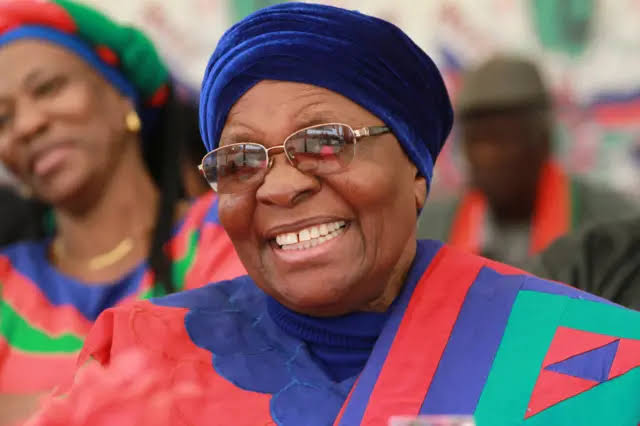Namibia’s New Female President Announces Free University Education Starting in 2026: A Major Leap for Youth and National Development
In a bold and transformative policy shift, Namibia’s new president, Netumbo Nandi Ndaitwah, has announced that starting in 2026, all public university and vocational education in Namibia will be free of charge. This historic move makes Namibia one of the few African nations to offer fully subsidized tertiary education and signals a strong commitment to empowering youth, reducing inequality, and investing in long term national development.
A Historic Presidency, A Bold Vision
President Nandi Ndaitwah made the announcement during her first State of the Nation Address to Parliament, only weeks after being sworn in as the first female president of Namibia in March 2025. Her election not only broke historical gender barriers in Namibian politics but also came with promises of bold reforms aimed at addressing the needs of the country’s largely young population more than 2.1 million of Namibia’s 3 million people are under the age of 35.
“We can no longer allow financial barriers to block the path to higher education for our young people,” said Nandi Ndaitwah during her address. “From 2026, no Namibian student attending a state university or government run vocational training center will pay tuition or registration fees.”
Scope of the Policy
Namibia currently operates two public universities the University of Namibia (UNAM) and the Namibia University of Science and Technology (NUST) and seven government run vocational training centers. All of these institutions will fall under the new policy.
While tuition and registration fees will be fully covered, some costs such as uniforms, personal supplies, and accommodation will still be borne by students and families. To further assist, the Namibian Student Financial Assistance Fund (NSFAF) has expanded its non tuition loan support, offering N$10,000 per year to eligible students for other academic related needs.
Addressing Unemployment and Poverty Through Education
The announcement forms part of a larger national agenda aimed at fighting youth unemployment, which remains one of Namibia’s most pressing challenges. The President’s administration is focused on equipping youth with practical, in demand skills, enabling them to participate fully in an evolving economy that is opening up new sectors such as green hydrogen, oil, and gas.
Nandi Ndaitwah has also reiterated a massive job creation plan, targeting 550,000 new jobs across key sectors through a N$85 billion investment. Education and training are central to this plan.
Investment in Vocational Training and Infrastructure
In parallel with tuition reforms, the government is ramping up investment in technical and vocational education and training (TVET). The Ministry of Higher Education has identified the TVET sector as essential for tackling unemployment, underemployment, and ensuring the country has the necessary skills to meet labor market demands.
To support the new education policies, the government is set to inject nearly N$8 billion over the next seven years to reform the entire education system. Key priorities include:
• Upgrading infrastructure in schools and training centers
• Expanding access to digital learning
• Enhancing teacher capacity
• Reforming TVET curricula to align with industry needs
A Turning Point for Namibia
President Nandi Ndaitwah’s education reform is being hailed as a potential game changer. Analysts and educators believe it could significantly improve national literacy rates, drive innovation, and foster economic inclusion, especially among rural and underserved communities.
The President’s vision is clear: build a future ready Namibia where every young citizen has access to quality education and the tools to thrive.
As the country prepares to implement the policy in 2026, attention now turns to how the ambitious reform will be financed and managed sustainably. Still, for many Namibian students and families, the promise of free higher education represents hope, progress, and a new chapter in the nation’s development story.








